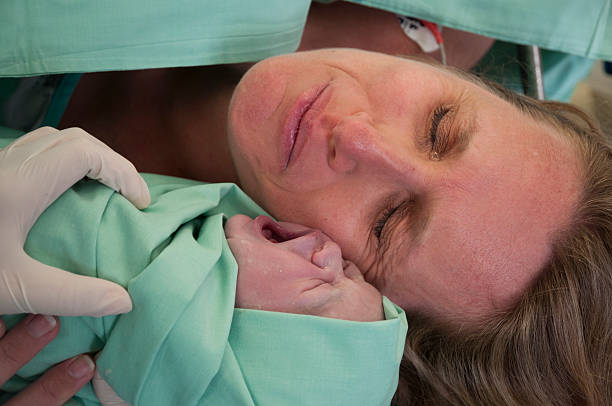Tips for new moms
Childbirth is an exciting experience. You finally get to deliver your baby after nine months of waiting. Yet, it can turn into a tasking experience, especially if you undergo a cesarean section during birth. You’ll need more time to recover, unlike with virginal delivery. However, you can speed up the healing process. Here are 8 tips that will help you heal within no time.
Get lots of rest.
Just like any other major surgery, after cesarean delivery, you’ll need time to recover. Your body will take about 6-8 weeks to recover. Try to get some sleep every time your baby naps. You can also seek help from relatives and friends with housework and the baby to get time to rest. A few hours of sleep here and there during the day will go a long way in speeding up the healing process.
Take pain relievers

Pain relievers are a must-have during the healing period. However, get a prescription from your doctor as you are probably breastfeeding or breastfeeding. Depending on the pain levels, the doctor may prescribe over-the-counter drugs such as ibuprofen or acetaminophen.
In addition to medication, heating pads help release uneasiness at the surgical point.
Watch your diet
A healthy diet is paramount after delivery. If you are breastfeeding, you are your baby’s source of nutrients. Be sure to include lots of vegetables and fruits in your diet to ensure your health and that of the baby. Taking plenty of fluids will also boost your milk supply and lower the chances of constipation.
Have stool softeners
Anesthesia, dehydration, and pain medication administered during cesarean section may cause constipation. Constipation isn’t fun. You are already experiencing incision pain, so you need to avoid any strain or pain when using the bathroom. Besides proper hydration, take the laxatives your doctor recommends to soften your stool.
Manage your emotions
You might encounter difficult emotions, especially if you had an emergency birth or unexpected cesarean delivery. These can trigger feelings of shame and guilt. You can get help processing these emotions by opening up to a friend, partner, or therapist. Getting timely support can help prevent or cure postpartum depression.

Go for regular walks.
Intense aerobic exercises and weight lifting are discouraged within the first weeks of recovery. As an alternative, regular walks can help improve your mental state and fitness.
Walking also reduces the risk of blood vessel clots and heart-related ailments during recovery.
Seek postpartum checkups
Contact a healthcare provider three weeks after delivery. Within 6-12 weeks after delivery, contact your healthcare provider for a postpartum analysis. During these checkups, you’ll be able to discuss your mental status, physical recovery, energy levels, feeding schedules for you and the baby, and the birth control options. Use these visits to inquire more about caring for the baby and your recovery.
Baby your body
Take extra precautions by holding your abdomen to protect the incision site as you cough or sneeze. Keep everything you need close to you so you do not get up too often. Ask for help when lifting something heavier than your baby. These will help prevent the stitches from opening up.
Finally, focus on your healing. Don’t compare your fate to that of your sibling or friend because everyone’s experience with the surgery differs.
Give your body all the time it needs to get back to normal.





